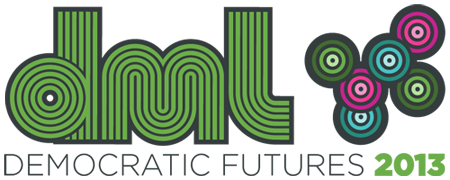21C: Teen Design Days: Promoting Youth Civic Engagement through Design Thinking
Overview
Our workshop addresses the joint role of designers, researchers, educators, and community activists in building an equitable, ethical, and sustainable future for digital youth. Drawing on design concepts and a distinct information school perspective, we will engage workshop participants in activities associated with the Teen Design Day Methodology. Developed by Professor Karen Fisher of the University of Washington Information School, this methodology provides an innovative way to help youth use technology to address complex issues in their communities.
Teen Design Days can be adapted to explore a range of concepts and activities with youth and capture research data in either one-time or serial sessions. The methodology meets youth’s needs for physical activity, self-definition, creative expression, positive social interaction, and meaningful participation in cross-culturally and gender appropriate ways through dance, cooking, drumming, etc. Currently, with support from the U.S. Institute of Museum and Library Services, Microsoft, the Seattle Public Library, and other community-based institutions, we are implementing Teen Design Days with immigrants from the Horn of Africa.
Often, ethnic minority youth serve as information mediaries for their families, teaching adult relatives about technology and providing everyday information. This is particularly true in immigrant communities, where youth have a better grasp of English and often help their families navigate daily situations. Thus, these youth occupy a critical position as civic actors, not just for themselves, but also for their families. Working with youth in their own settings, the Teen Design Day Methodology provides insight into their info mediary role and supports youth in designing improved information technologies. In the process, teens develop the skills and competencies, including information and civic literacies, needed to become engaged participants in a democratic future.
Workshop structure
Katie Davis will frame the workshop by describing the unique lens that information schools contribute to the topic of youth civic engagement in a digital age. Karen Fisher will then provide an overview of the Teen Design Day Methodology, including its theoretical and empirical foundations, primary components, and research conducted around it. To provide a firsthand view of the methodology in action, youth will share their experiences in a recent Teen Design Days project, complemented by a brief video documenting the project.
Following this introduction, workshop organizers, including youth, will lead participants in hands-on activities in small groups of their choice designed to explore ways to adapt the Teen Design Day Methodology in their own work addressing digital youth’s democratic futures. We anticipate a fruitful opportunity for researchers and practitioners to examine their work with the perspective of design thinking. By drawing connections between their work related to any one of the conference themes or overall focus and the Teen Design Day Methodology, participants will gain new insight into strategies and technologies for promoting critical thinking and engaged citizenship among youth, especially marginalized groups such as ethnic minority and immigrant youth.
Eliza Dresang will provide closing remarks that reflect on the workshop activities, and synthesize concepts and insights from the session in the broader context of the conference theme.



